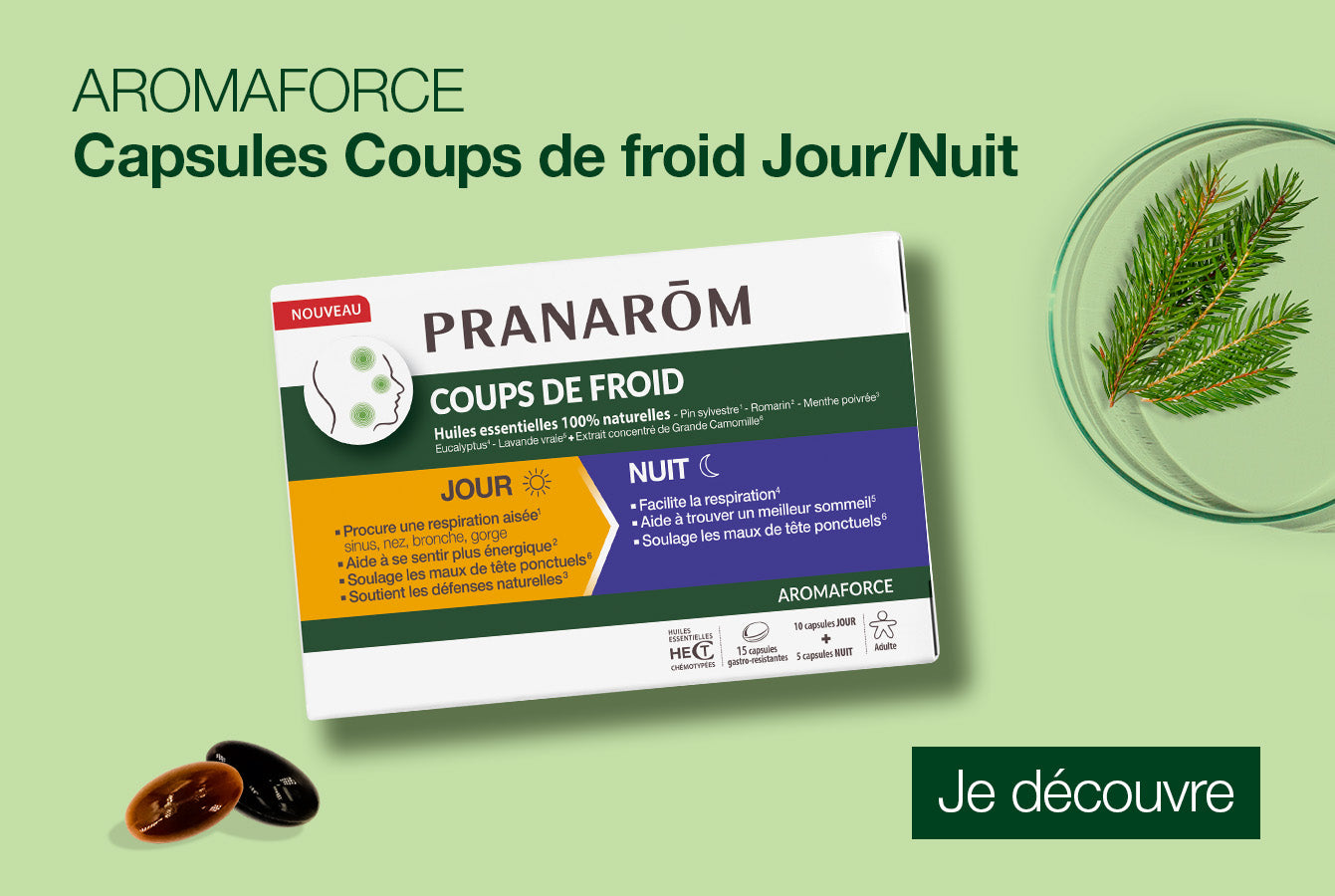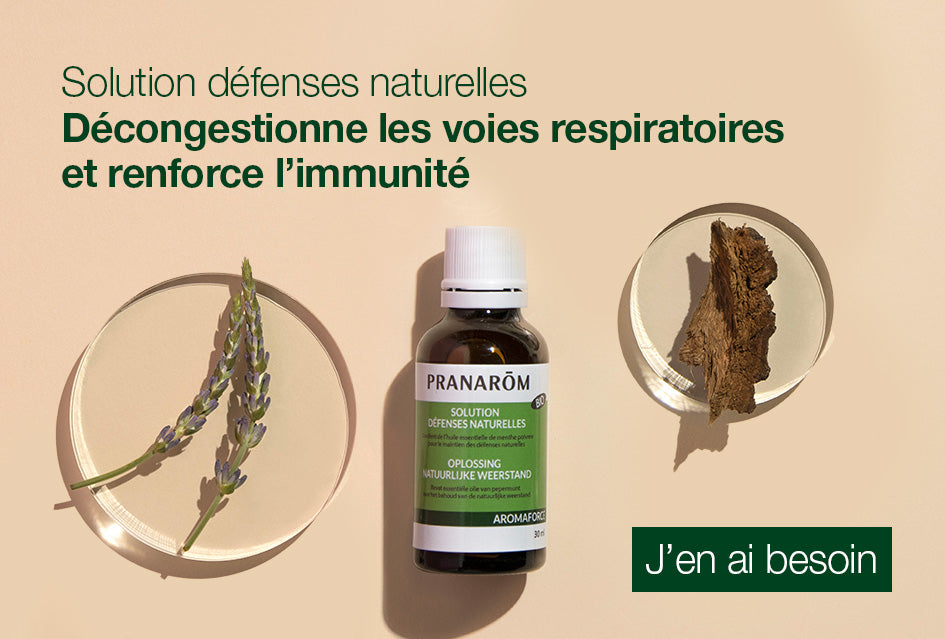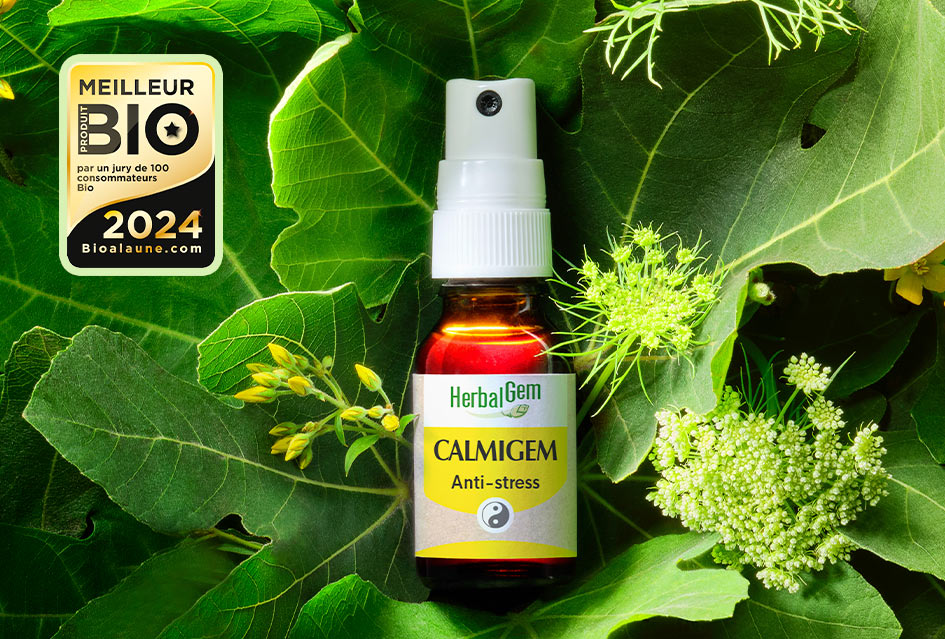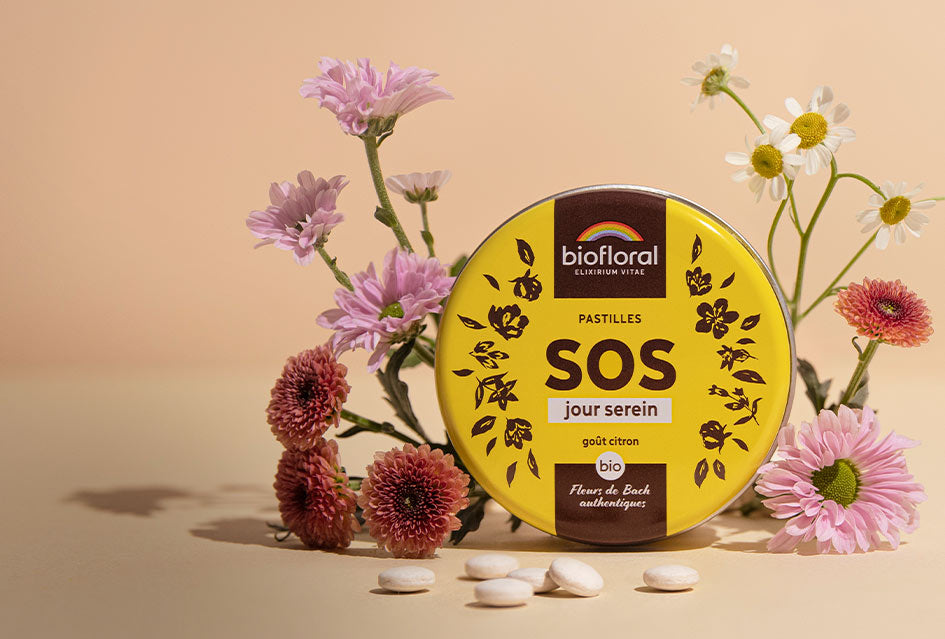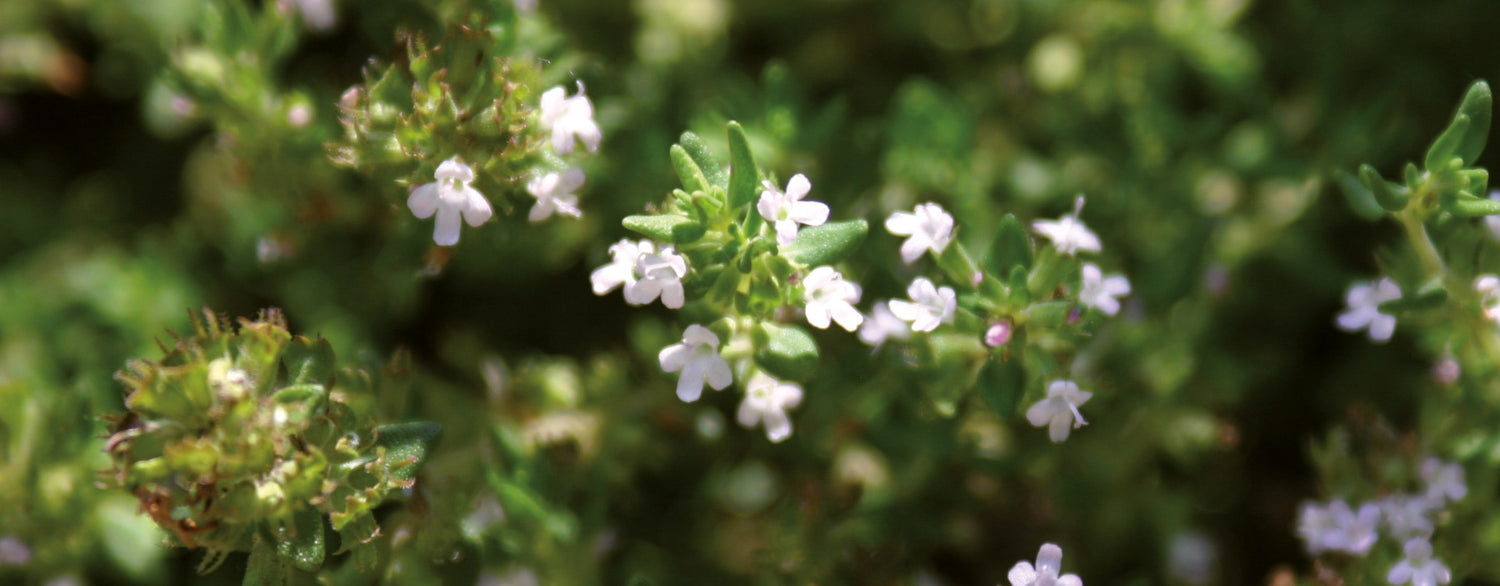When we talk about thyme, it's imperative to ask one fundamental question: which is which? Indeed, although this is obvious to essential oil experts, there are many different species of thyme.
In scientific aromatherapy, two plants of the same species that thrive in different environments can produce biochemically distinct essential oils. This characteristic, called a "chemotype," is traditionally indicated by a reference to the predominantly present molecule. Thus, the most well-known thyme essential oils are derived from various chemotypes of a single species. For the sake of clarity, we will present the most well-known thyme oils and divide them by application.
Phenolic thyme for winter ailments
There are three different thyme essential oils that have a rather similar composition to combat winter discomforts:
- Common thyme with thymol (Thymus vulgaris CT Thymol);
- Red thyme (thymus zygis);
- Wild thyme (thymus serpyllum).
Their richness in Phenols (Thymol and/or Carvacrol) makes these Essential Oils true allies during sensitive periods and seasonal changes. Caution, however! Phenols must be diluted before use and only applied to the skin at very low concentrations and in very specific cases.
Thyme with Linalool for healing
Often considered to be gentler than the Thymol chemotype discussed above. Traditional aromatherapy generally uses Thyme Essential Oil with Linalool ( thymus vulgaris CT Linanol) . It is often used as an alternative for sensitive populations. However, the significant presence of linalool allows its use in many cases. In particular for inhalation against temporary stress or localized application for epidermal repair.
Whether applied directly to the skin, diffused, or added a few drops to your hair care, this versatile essential oil is a must-have for body care, especially during winter.
Thyme with Thujanol for the ENT sphere
We can't write an article about thyme without mentioning one of our specialties at Pranarōm: common thyme with thujanol ( thymus vulgaris CT thujanol ). Grown exclusively in the South of France, this organic essential oil offers a richness in thujanol which makes it an oil with a very unique composition and a rare chemotype. This essential oil is ideal for relieving throat and ENT discomfort. Although its mechanism of action remains a mystery, this essential oil is a must-have in the family kit of any informed user!
Thyme with Geraniol for the intestinal sphere
Rarely used in aromatherapy except perhaps by the initiated, common thyme with Geraniol (thymus vulgaris CT geraniol) is a rare Essential Oil. Its high geraniol content makes this thyme oil particularly suitable for the intestinal sphere because it supports digestion.
It's also worth noting that Thyme Geraniol Essential Oil is rarely used in cosmetic treatments, such as hair care, and is generally more suitable for internal use. Furthermore, it's important to take special precautions when using this oil, especially on children. The price of Thyme Geraniol Essential Oil can vary depending on its quality and origin. It is also used in the manufacture of certain products such as nail polish or dietary supplements.
Savory thyme (thymus satureioides)
Savory thyme is one of the Essential Oils with the highest concentration of Borneol. Due to this high concentration, it is mainly intended for muscle massages (after dilution). Thus, borneol helps to relieve sensitive muscles and joints. Its composition also allows its use in cases of respiratory discomfort. In this context, this thyme is slightly similar to the benefits of Inula graveolens Essential Oil .
This type of thyme is found in certain products in the Aromalgic range , such as the children's balm, the joint and muscle roller, or the back, thigh and calf massage oil.
As you will have understood, there are a multitude of thymes and we could also have talked to you about sea thyme or even the lying thyme for example. It's quite simple, if we took all the thymes into consideration it would be possible to overcome almost all the ailments that we can encounter.
In short, there is a wide variety of thyme, each offering its own unique benefits. Whether for respiratory, digestive, or skin discomfort, each type has specific indications. However, it is essential to take precautions, particularly by diluting phenol-based essential oils and avoiding excessive use in children. Furthermore, it should be noted that thyme essential oil is rarely used in cosmetic products, but rather as a dietary supplement.


